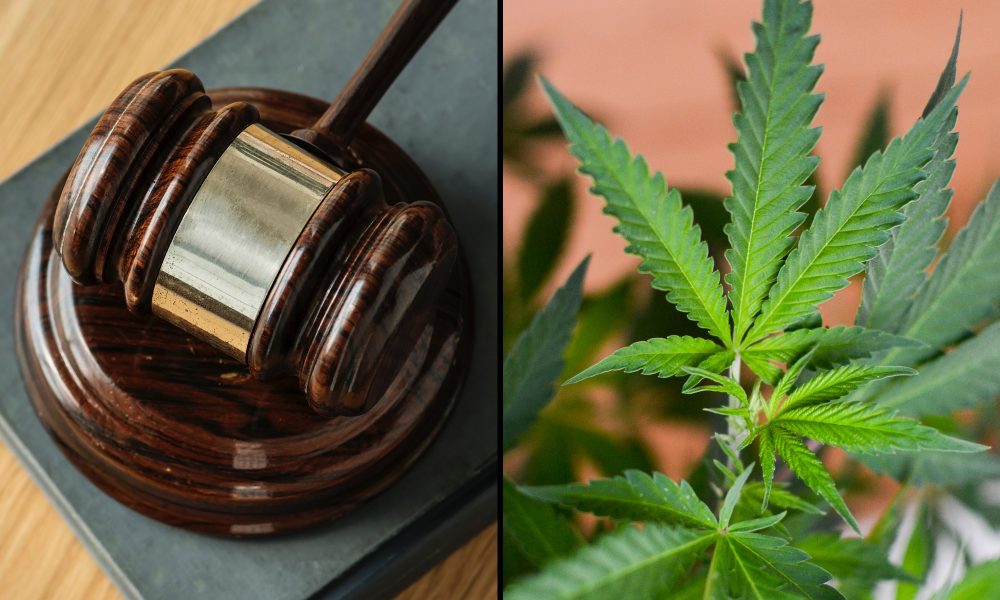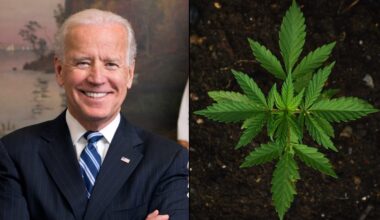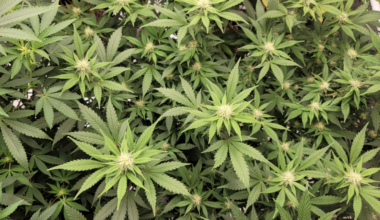Lawyers for a man serving time in federal prison for operating a state-legal medical marijuana dispensary are making the case that a U.S. Supreme Court justice’s recent statement denouncing the inconsistencies of federal cannabis policy underscore the need for the relief to be granted to their client.
Luke Scarmazzo, who was sentenced to 22 years in federal prison while acting in compliance with California’s marijuana laws, filed a motion for compassionate release in June. And his legal team recently submitted a supplementary brief that cites statements from one of the Supreme Court’s most conservative justices, Clarence Thomas.
While the high court recently declined to take up case related to an Internal Revenue Service investigation into tax deductions claimed by a Colorado marijuana dispensary, Thomas issued a statement that more broadly addressed the federal-state marijuana disconnect.
Now, Scarmazzo’s team is arguing that the U.S. District Court for the Eastern District of California should take the justice’s comments into account when considering his motion for compassionate release. Scarmazzo was also one of numerous people incarcerated over marijuana who advocates sought a commutation for from the Trump administration.
Thomas wrote that the “contradictory and unstable state of affairs strains basic principles of federalism and conceals traps for the unwary,” adding that “though federal law still flatly forbids the intrastate possession, cultivation, or distribution of marijuana,” the government “has sent mixed signals on its views.”
The new brief from Scarmazzo’s attorneys notes that the court has authority to grant relief if there is “extraordinary and compelling reason,” and it lists a number of circumstances that the defendant’s counsel say meets that standard. That includes the fact that Scarmazzo’s father was diagnosed with bone marrow cancer and he has the blood type to provide a transplant, and also that his sentence would have been reduced under criminal justice reform legislation passed by Congress last session.
“The judge in Luke’s case has an opportunity to correct a massive injustice,” Weldon Angelos, who received a pardon for his own marijuana-related conviction from President Donald Trump and has become a leading advocate to win relief for other people impacted by federal cannabis prohibition, told Marijuana Moment.
“Both Obama and Trump passed on correcting this injustice but the district court—thanks to the First Step Act—has the authority to find that Luke’s situation presents extraordinary and compelling circumstances justifying a reduced sentence,” he said, referring to sentencing reform legislation signed by Trump. “The legal landscape around marijuana has changed so much since Luke was prosecuted that he could not even be prosecuted today. We hope the judge finds that fact alone to be compelling.”
The crux of the new brief from Scarmazzo’s lawyers concerns Thomas’s statement in the unrelated IRS case.
Attorneys asserted that the justice’s comment “is an acknowledgement by the highest court in the land of the monumental change that has occurred throughout the nation in the attitudes and laws governing marijuana, and therefore provides further, compelling, support to the extraordinary and compelling reason the defendant should be eligible for Compassionate Release based on a change in law.”
“While Justice Thomas’s opinion does not embody the resolution or determination in a specific case, his opinion rests upon a solid foundation and is no less applicable to the Defendant’s case,” it continues. “Thomas felt compelled under the circumstances to expound upon the history and current state of the federal prohibition on cultivation and use of marijuana, the many changes to the laws at the state level, and the contradictory federal marijuana policy that are virtually unsustainable at this point.”
“This court should join the majority of District Courts who have granted Compassionate Release when the law has changed, and reform has occurred. Since the long sentence is not consistent with the current state of law, or the sentences imposed upon his co-defendants, and since he may provide life saving support to his father, Mr. Scarmazzo should be granted compassionate release.”
The Biden administration has also been pressed on Scarmazzo’s case, with a reporter citing his circumstances in a question to White House Press Secretary Jen Psaki during a briefing in April.
“Given, as you’ve noted in the briefing, the president’s support for decriminalization, support for expunging exactly these types of offenses, are there any plans to revisit some of those bids for clemency?” the reporter asked at the time.
“Well, I would just take it as an opportunity to reiterate that the president supports legalizing medicinal marijuana,” Psaki said. “It sounds like this would have been applicable in this case, and of course decriminalizing marijuana use and automatically expunging any prior criminal records. In terms of individual cases, I can’t get ahead of those obviously.”
Psaki did say last week that the president is looking into using his executive authority to grant clemency to people with certain non-violent drug convictions.
Asked about plans for federal inmates who were released to home confinement during the outbreak of the coronavirus pandemic but who will have to return behind bars, Psaki said the administration is “working hard every day to reform our justice system in order to strengthen families, boost our economy, give people a chance at a better future.”
Read the brief on Scarmazzo’s marijuana case and Justice Thomas’s statement below:
Scarmazzo Post-Hearing Brief by Marijuana Moment
GOP Senator Promises To Press DEA About Medical Marijuana Exemption For His State
Photo elements courtesy of rawpixel and Philip Steffan.
Medical Disclaimer:
The information provided in these blog posts is intended for general informational and educational purposes only. It is not a substitute for professional medical advice, diagnosis, or treatment. Always seek the advice of your physician or other qualified healthcare provider with any questions you may have regarding a medical condition. The use of any information provided in these blog posts is solely at your own risk. The authors and the website do not recommend or endorse any specific products, treatments, or procedures mentioned. Reliance on any information in these blog posts is solely at your own discretion.







